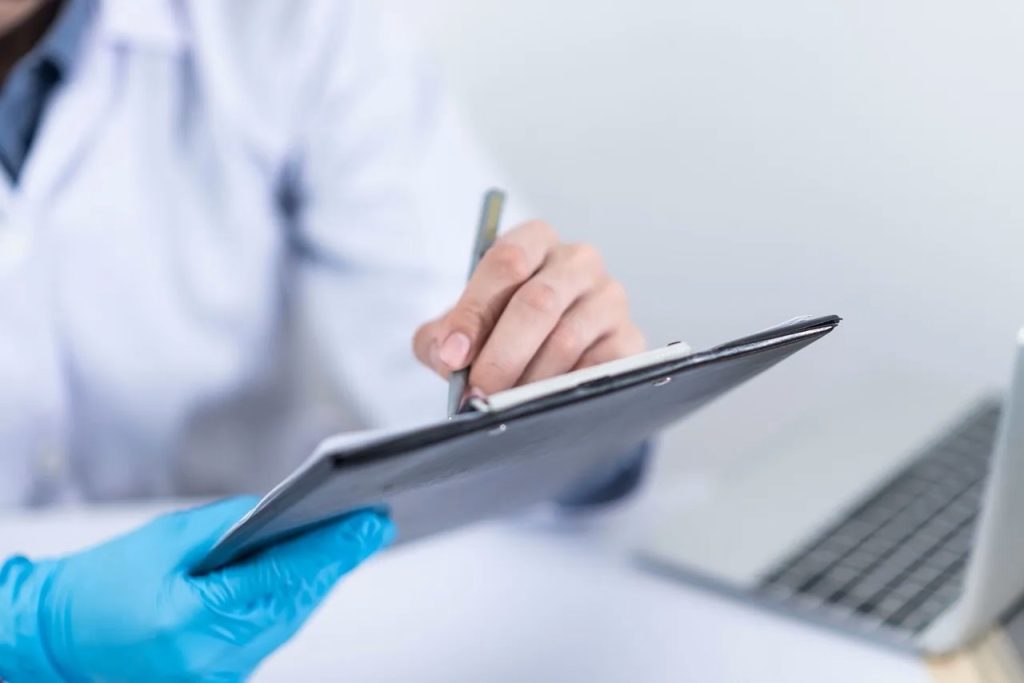5 Things You Should Take To Every Doctor’s Appointment

Going to a doctor’s appointment can be stressful, whether it’s for the first time as a new patient or as a follow-up. Remember that they see a multitude of patients every day and will not be able to remember everything about you, so it’s good to have some things prepared so you’re ready to have a productive conversation and you get the treatment you need. Most of these things involve writing, but it doesn’t have to be handwritten, it can be on your phone, tablet, or wherever is convenient for you. Also, remember that you can always get a second opinion or change doctors if you feel that you are not getting the attention or care you deserve.
1. A list of your symptoms
If you already have a diagnosis you can start with that, but if you’re still in the stage of trying to get a diagnosis then having a list of symptoms, especially if you’re able to provide the severity or frequency and how long it has been going on, can be very helpful. It also is helpful because if you do it for every appointment you can see trends and whether or not a treatment is working.
2. A list of your medications and allergies
When you go see a doctor they typically update your list of medications and allergies in their system, but it’s hard to remember everything sometimes. Having it written down for yourself prior to your appointment helps you with your paperwork and makes it easier to discuss. Make sure you have the names, doses, and frequency of all the medications you take, including over-the-counter and once-in-a-while ones. If you are seeing a new doctor for an illness that you have had for a while you can also write down the treatments that you’ve already tried, how long you were on them, and how well they worked.
3. Questions and topics you want to discuss
It can be hard to remember everything you want to say to your doctor, especially if they’re rushed or your appointment isn’t very long. I’ve had multiple times where I’ve forgotten to ask various questions that I intended to and realized after my appointment and it’s very frustrating. Having a list of questions helps make sure you ask everything you want and you can write the answers in the same place to look back on.
4. Something to write notes on
It’s easy to get distracted and forget something from the time you leave your appointment to the time you get home. Sometimes it can be a lot of information and many illnesses cause brain fog. Having somewhere to write the main points that you discuss with your doctor helps make sure you have a successful and beneficial appointment. This can include general topics, tests you need to get done, medication changes, and treatment options.
5. Recent labwork, scans, reports, etc…
If you have any recent tests done, whether ordered by the doctor you’re going to see or another doctor, it is good to make sure they have a copy or access to that data. You can provide a lot of information about yourself, but you can’t really provide the same information that scientific tests can that will help them know more specifically what is or isn’t wrong in you.
Physical copies are always helpful because they can make copies to scan into their systems and you can keep your copy for your records. Digital copies can be helpful for you, but not everywhere will accept that. If you don’t want a copy for yourself you can call beforehand to confirm they already have a copy or if you need to make some calls and have it sent to them by fax or mail.
Bonus: A patient advocate
While we expect doctors to listen to their patients and preferably believe them, the harsh reality is that not all of them do. Personally, I’ve found that having someone else in the room can make a huge difference in the quality of treatment. When someone else is there it feels like you get taken more seriously and it helps to have someone else there to remember everything. They can also verify what you’re saying and emphasize your main concerns. This can be a family member or a friend that you trust, and you can ask them to step out for part of your appointment if you don’t feel comfortable discussing everything in front of them. Q
